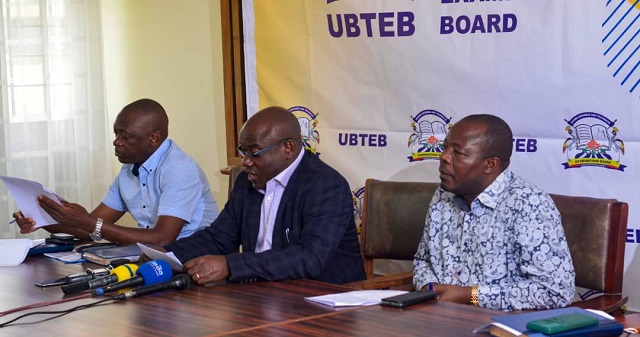
Kampala, Uganda | THE INDEPENDENT | The number of students enrolling in technical vocational education and training programmes has increased, this is according to the Uganda Business and Technical Examinations Board (UBTEB).
According to Onesmus Oyesigye, Executive Secretary of UBTEB, the board has enrolled 87,846 students from 601 centres nationwide for the upcoming November-December examination. He says that in previous years, candidates have often ranged between 35,000 and 40,000.
The figures are registered in a variety of categories, including national certificate-technical, diploma-technical and vocational programmes, as well as the physical, biological, and agricultural sciences, business and humanities.
The increase in the numbers means that the number of students opting for TVET is now not far from those at Uganda Advanced Certificate of Education (A’Level). For instance, Uneb has registered 97,890 applicants this year, which is also its largest number.
Oyesigye adds that this occurrence gives reason for optimism that, at long last, more Ugandans are beginning to value TVET. Previously vocational institutions have been challenged by the low turn-up of students for these courses.
The briefing of the UBTEB examination managers and reconnoiters happened today 19th of November 2022 at Public Health College , over 87000 students will be sitting the Nov – Dec 2022 Examination series@Educ_SportsUg @GCICUganda @UgandaMediaCent @TVETuganda pic.twitter.com/ivf3B4xwno
— Uganda Business & Technical Examinations Board (@UBTEBOfficial) November 19, 2022
Jalia Nasaza, manager of vocational education at UBTEB says that she is not surprised by the increase. Nasaza points out that TVET has been working hard in recent years to draw in new students by putting in place a number of initiatives, some of which, in her opinion, are now paying off.
Nasaza, for example, particularly attributes the introduction of the modular examination and regional admissions to the sharp rise in applications this year.
Last year, the Ministry of Education and Sports issued new guidelines for the admission of learners in Technical Vocational Education and Training Institutes separating selection for TVET and health training institutions from the national placement process, to ensure a demand-driven process for the skills training sub-sector.
Previously, selection for TVET institutions had been conducted by the national selection committee alongside S.1 and S.5. For learners from A’ level, the admission was conducted by the joint admission board.
However, under the new guidelines, admission to TVET institutions has been opened to all Ugandans regardless of age with or without formal education replacing the old process where admission was restricted to Primary Seven, Senior Four, and Senior Six leavers.
Oyesigye, also says that previously the national selections could place learners who are not interested and others could be put in institutions they were not interested in.
Modular assessment is another game changer given the fact that percent of the candidates registered (63,846) are under this arrangement. This form of assessment which was introduced this year allows someone to study for a period ranging from three to six months and can be assessed for given competence in the module offered and thereafter join the world of work.
Oyesigye says it has increased accessibility and flexibility in training and acquisition of employable skills.
Due to a large number of candidates, the November-December assessments will be administered in two phases to allow for supervision, coordination, and monitoring. Phase one began on November 18 with a briefing, while phase two is scheduled to begin on December 2, 2022.
As part of vigilance and ensuring the security of examination, the board has deployed over 5,000 examination managers. Given the practical and hands-on assessment of some modules, the board has also deployed 3693 practical assessors and 50 verifiers to conduct the spot assessments of candidates in different fields.
*****
URN
 The Independent Uganda: You get the Truth we Pay the Price
The Independent Uganda: You get the Truth we Pay the Price



